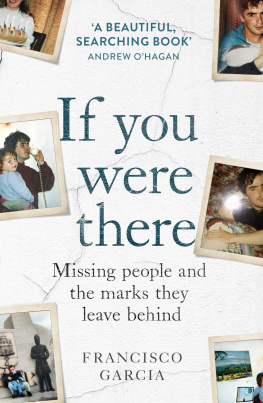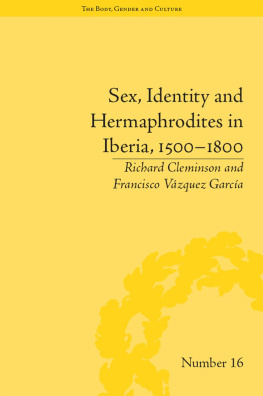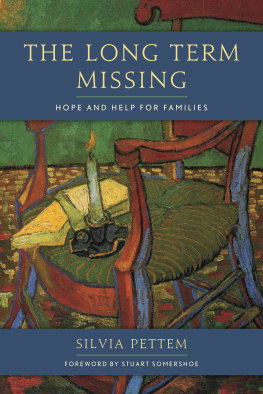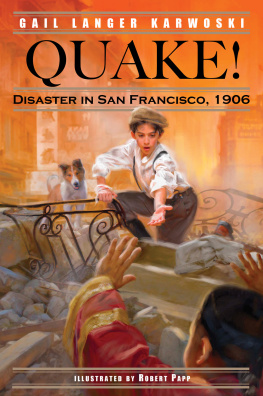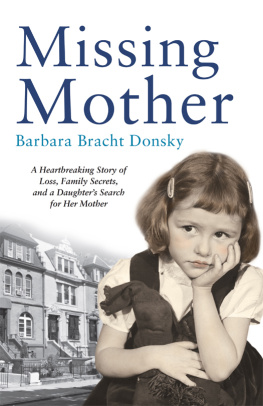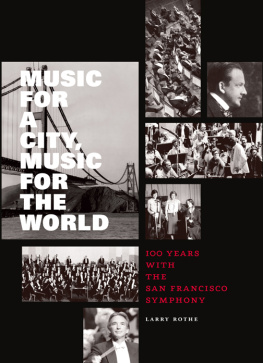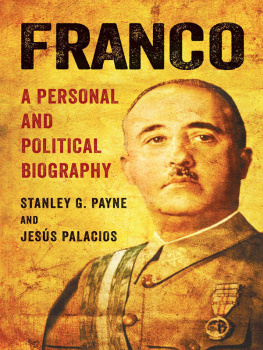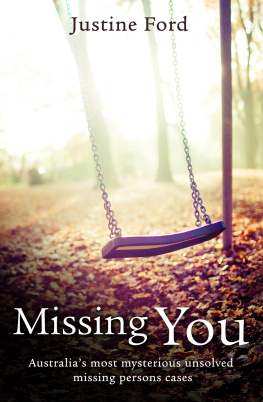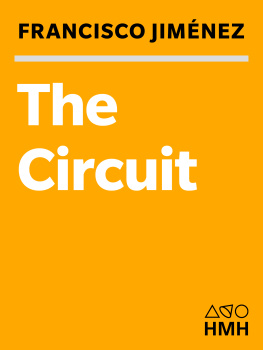Mudlark
An imprint of HarperCollinsPublishers
1 London Bridge Street
London SE1 9GF
www.harpercollins.co.uk
HarperCollinsPublishers
1st Floor, Watermarque Building, Ringsend Road
Dublin 4, Ireland
First published by Mudlark 2021
FIRST EDITION
Francisco Garcia 2021
Cover design by Simeon Greenaway HarperCollinsPublishers Ltd 2021
Cover photographs Francisco Garcia
A catalogue record of this book is available from the British Library
Francisco Garcia asserts the moral right to be identified as the author of this work
All rights reserved under International and Pan-American Copyright Conventions. By payment of the required fees, you have been granted the nonexclusive, non-transferable right to access and read the text of this e-book on screen. No part of this text may be reproduced, transmitted, downloaded, decompiled, reverse engineered, or stored in or introduced into any information storage retrieval system, in any form or by any means, whether electronic or mechanical, now known or hereinafter invented, without the express written permission of HarperCollins e-books.
Find out about HarperCollins and the environment at
www.harpercollins.co.uk/green
Source ISBN: 9780008412159
Ebook Edition April 2021 ISBN: 9780008412166
Version: 2022-04-11
This ebook contains the following accessibility features which, if supported by your device, can be accessed via your ereader/accessibility settings:
- Change of font size and line height
- Change of background and font colours
- Change of font
- Change justification
- Text to speech
- Page numbers taken from the following print edition: ISBN 9780008412159
To my wonderful family
I sometimes wonder what was disappeared first among all the things that have vanished from the island.
The Memory Police by Yoko Ogawa
PART I
Chapter 1
Of all the everyday, occasionally comforting lies we tell ourselves and others, the idea of a first memory is perhaps one of the most powerful. Its a nice enough thought. The first intrusions of consciousness and colour, the very first indications of being here, beyond the sensory oblivion of earliest childhood. I tend to find that the people I ask for theirs only want to admit to the resolutely banal and believable, though perhaps that is just the truth of the matter. First memories are such a uniquely personal, fractured thing. And just like our dreams, they lose so much of their individual power when dissected out loud and at the mercy of another persons capacity for boredom. As I get older, I find myself more and more intrigued by what people are liable to recall. For some, those first flashes seem to prove something significant; perhaps even a portent of the life theyve happened to live since. For others, they mean nothing at all outside of the accidents of memory.
Im still not quite sure where I sit between these two poles. Its not that my first recollections are anything remotely special, far from it. If I close my eyes and cast back theres the usual jumble, smoothed into neatness by many years of practice. And there I am, suddenly aware of earth and summer heat, sitting by the small cluster of trees at the end of a small concrete garden. Above me there is greenery mixed with sunlight and a few lengthening shadows. To my left, the shape of a door pointing to a shaded, tiled kitchen itself leading back into what I now understand as signifying home then, the shoddily converted bottom half of a crumbling Victorian house in Hither Green, in the seemingly endless and exasperated depths of south-east London. In place of any definite sound, there is an atmosphere, at once heavy and content, the unmistakable indolence of an afternoon in high summer. And there is the feeling of something, someone, else. A larger figure, tucked halfway out of sight, watching unobtrusively. Their presence is part of the scenes security. Its the shape of a slightly stooped young man, rake thin and verging on the edge of frailty. It is the outline of my father, Christobal Garcia-Ferrera, as he watches on from his vantage point on a plastic garden chair, content enough to let me roam, as long as I remain in his line of vision.
Theres no way of saying with total precision when this fleeting domestic scene played out, but some rudimentary detective work tells me it must be around 1995. I was born three years earlier, less than a mile up the road at Lewisham Hospital, with the certificate signed by both Christobal and my mother, Stephanie Garcia-Ferrera. I arrived on the late afternoon of 13 July 1992. A newly born responsibility, to be tended to and doted on. Naturally, Mum had it hardest that day. Id had to be cut from her, a caesarean delivery at the end of a relatively uncomplicated pregnancy spent mainly in the cocoon of the local area. The afternoon was backdropped by heavy rainfall, just one predictable hazard of any London summer. And yes, he was present though not the whole way through. He could be excitable like that, it was just in his nature, the need to fidget and pace like a slightly unruly child.
My gran my mothers mother used to tell me the story with a still disbelieving chuckle, many years later. Christobal (Chris, as hed always been known here) couldnt quite stick with the protracted drama of the labour hours and had headed out into the car park and the nearby streets to pace and pirouette, a ball of anguish and coiled up excitement. But when the all-clear came, how he rushed back in to be by Mums side and take me up in his arms. For some never quite explained reason, it was my hands he was most taken with, at least thats how Gran told it. My son, he was said to have shouted, grabbing any nurse and passer-by who would listen, has the most incredible hands! Gran always did love to tell that story, needing only the very slightest excuse to prompt a full recital. Were it possible, Id like to tease Christobal about its veracity and that of all the other little narrative flourishes that day has since been wrapped in. But that has not been possible, for many years now.
They had first met in Spain. At the very southern tip of Andalusia, where Europe dissolves into Morocco and the rest of North Africa. In La Lnea de la Concepcin, a small and perpetually troubled coastal city of fewer than 70,000 people, not far from the geographic and territorial oddity of Gibraltar. Christobals hometown and almost all he knew before his new life in London. For as long as anyone can remember, it had been a city of smugglers and bandits; a frontier town founded as a bulwark against English conquest and only given formal recognition by the Spanish state in the late nineteenth century. What can I say about his family there other than the fragments that Ive come to know, over the years. A sprawling, working-class clan, with many siblings and cousins, most of whom lived and worked in the city or its periphery. Perhaps thats one of the things that appealed to Mum, on their first meetings. She was a Londoner, whose adulthood had grown to be marked by an increasingly intense love affair with all things Iberian. It had stemmed from a trip to Granada with her eldest sister, some years before, in the late 1980s. Theres a photo that still lives in my aunts house from that first trip. Mum, sitting in the window of a cloister, sheltered from the dazzling afternoon light outside. With one hand resting under her chin, her eyes pointed out to an invisible horizon, a scene of almost religious contemplation and tranquillity, like something from a Rossetti print.

